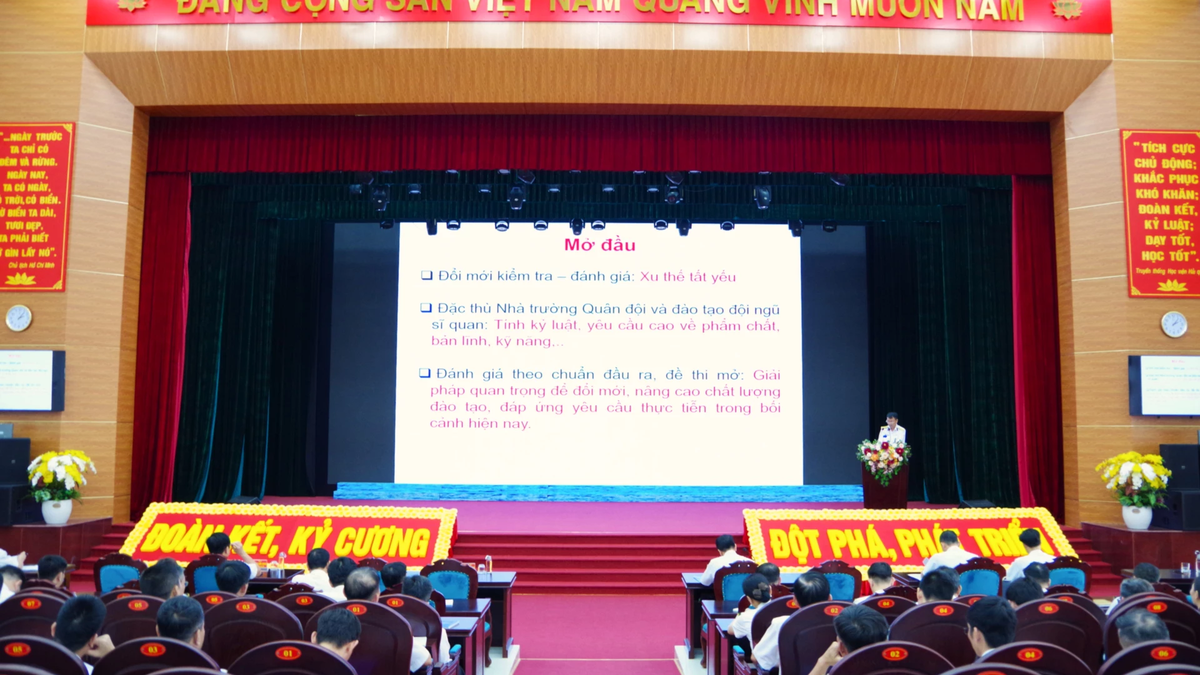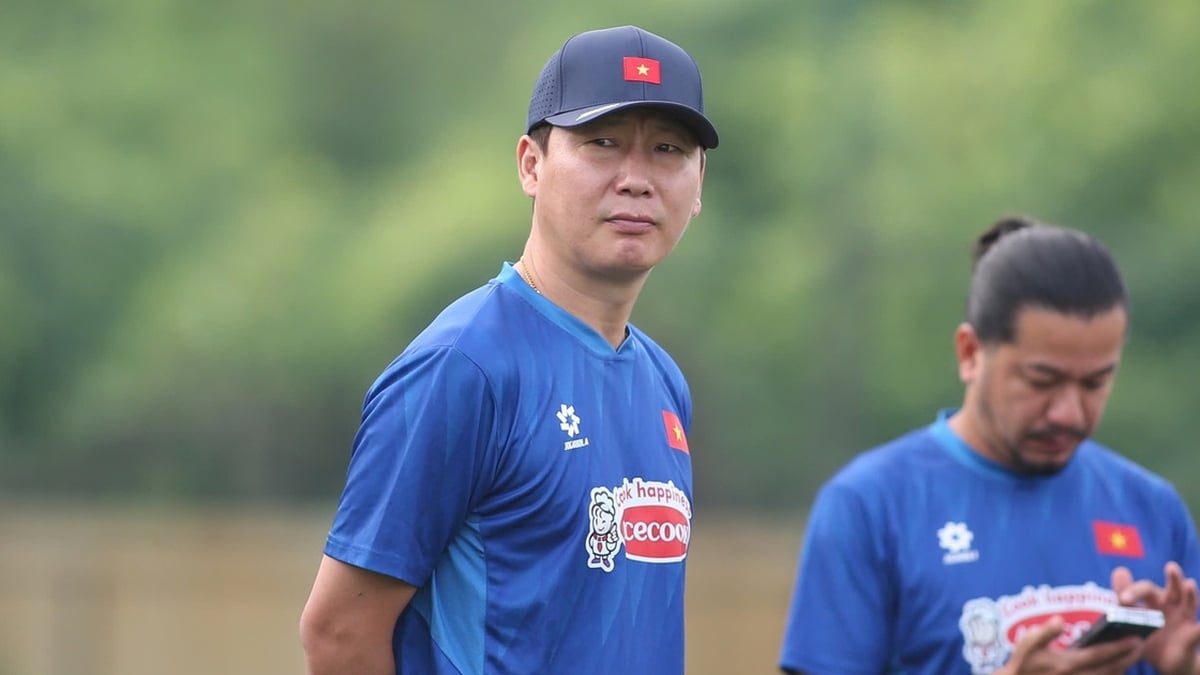 |
| Organizations and individuals have implemented many practical activities, creating a useful playground for students of the Thai Nguyen Center for Support and Development of Inclusive Education for Children with Disabilities. |
Teacher Nguyen Thi Thu Trang, Dong Bam Kindergarten, Linh Son Ward, has been in the profession for 18 years. According to Ms. Trang, teachers are often assigned by the school to be in charge of each class, from nursery to senior kindergarten.
During her work, the class she has been in charge of for many years has had children with developmental delays, hyperactivity or disabilities. Ms. Nguyen Thi Thu Trang confided: To teach children to integrate, every year we receive intensive training on each topic on the model of educating children with autism, hyperactivity and disabilities. Through observation, I have noticed that the rate of students with these symptoms is increasing. Recognition is not difficult, teachers only need to observe to detect it right after 1-2 weeks of students entering school. There are many signs to recognize autistic children. For example, when the teacher asks, the child does not listen or does not do it; has different behavior compared to other children such as suddenly crying, running in circles, only liking to play with round objects.
When TV time is over and the teacher turns off the device, some children cry, throw toys, do not communicate with their friends, but only play alone with slippers and chairs. In some cases, when the teacher approaches, the children are scared, cower and cover their bodies with their hands.
When the above condition is detected, teachers discuss with parents, advising the golden time from 2-3 years old for children to participate in intervention at specialized centers. Many parents only find out that their children have hyperactivity after taking their children to the doctor. Every day, outside of preschool hours, families take their children to centers for further intervention.
Ms. Trang said that there were families where the mother cooperated with the teacher, but the father and grandmother thought that their child was being discriminated against, so they asked to transfer schools. When the child entered primary school, due to lack of timely intervention, there were cases where parents asked for their child to return to preschool. If the family cooperated in early examination and intervention, the child would receive better support, improving both physically and mentally.
Hoa Sen Kindergarten, Dai Phuc Commune, currently has 27 teachers directly teaching classes. Last school year, the school organized 12 classes with 305 children; on average, each year, children with intellectual disabilities or hyperactivity accounted for about 0.02%.
Ms. Nguyen Le Thu, Principal of the School, said: The key solution is to encourage parents to send their children to school regularly. During the teaching process, teachers observe and grasp each specific case to advise on appropriate nutrition. With this method, Hoa Sen Kindergarten assigns teachers to be in charge of classes with children with intellectual disabilities or hyperactivity, and assesses the progress of each child every month to promptly make adjustments. If the child makes significant progress, the School maintains the method being applied, if the progress is slow, it will continue to monitor and change appropriate educational measures.
However, during the teaching process, some homeroom teachers at secondary schools said they still encountered strong reactions from some parents when their children were in the same class with autistic or hyperactive children. Instead of sympathizing and sharing with teachers and classmates, some families asked to transfer their children to another class or school.
In these cases, teachers must meet directly with parents to discuss. An expert in this field, Dr. Le Thi Phuong Hoa, Head of the Department of Psychology, Faculty of Educational Psychology, Thai Nguyen University of Education, said: No one wants children to have mental or behavioral disorders, but that does not mean they are deprived of their right to education. Children have the right to go to school, to study, to have friends, teachers, and to participate in activities. That is the best environment to support autistic children to improve their condition.
Source: https://baothainguyen.vn/xa-hoi/202508/giao-duc-tre-hoa-nhap-can-lam-su-se-chia-c19041c/



























![[Photo] An Phu intersection project connecting Ho Chi Minh City-Long Thanh-Dau Giay expressway behind schedule](https://vphoto.vietnam.vn/thumb/1200x675/vietnam/resource/IMAGE/2025/8/21/1ad80e9dd8944150bb72e6c49ecc7e08)





































![[Photo] Politburo works with the Standing Committee of Hanoi Party Committee and Ho Chi Minh City Party Committee](https://vphoto.vietnam.vn/thumb/402x226/vietnam/resource/IMAGE/2025/8/21/4f3460337a6045e7847d50d38704355d)


































Comment (0)